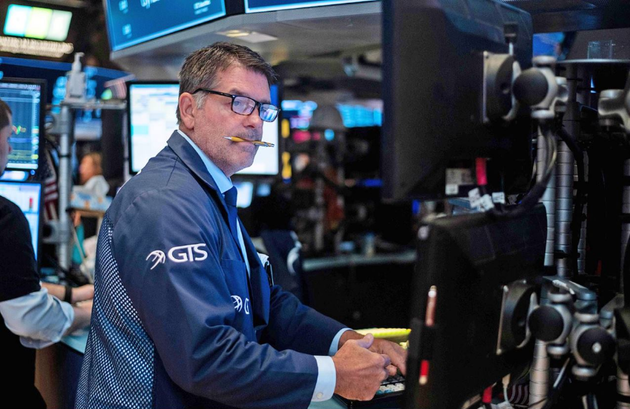
Photo/VCG
Wall Street's major averages closed sharply lower on Monday as concerns over oil-price plunge and the continued spread of the coronavirus gripped the financial markets.
The Dow Jones Industrial Average cratered 2,013.76 points, or 7.79 percent, to 23,851.02. The S&P 500 was down 225.81 points, or 7.60 percent, to 2,746.56. The Nasdaq Composite Index shed 624.94 points, or 7.29 percent, to 7,950.68. All three benchmarks suffered their biggest one-day percentage drops since 2008.
Massive sell-off in early trading triggered a rarely used circuit breaker, and trading was halted for 15 minutes shortly after Monday's opening.
All the 11 primary S&P 500 sectors finished lower, with energy falling 20 percent, representing the worst-performing group.
The Cboe Volatility Index, widely considered as the best fear gauge in the stock market, spiked 29.85 percent to 54.46 on Monday.
A collapse in oil prices added to the complexity facing global investors grappling with the spread of COVID-19, according to analysts.
In addition to fears of the spread of the virus, "the plummeting energy sector and oil due to the discord between Saudi Arabia and Russia is also of deep concern," Peter Tuchman, an experienced trader on the floor of the New York Stock Exchange (NYSE), told Xinhua on Monday.
As one of the most powerful commodities, oil is a big factor for markets, he added.
Saudi Arabia announced massive discounts to its official selling prices for April over the weekend, and is reportedly ready to raise its production above the 10 million barrel per day level.
The move came after the Organization of the Petroleum Exporting Countries (OPEC) failed to strike a deal with its allies, led by Russia, about oil production cuts last week.
Oil prices plunged more than 24 percent on Monday as the failure to strike a deal on output cuts among the world's major oil producers triggered fears of a price war.
"The market doesn't like uncertainty. We live in a day and age where electronic trading, which is based on speed and efficiency, is moving markets more fluidly than ever before," Mark Otto, a veteran NYSE trader and founder of Specialist 88 LLC, told Xinhua.
"Although the market is rebounding off of session lows, it is apparent that volatility will remain the norm for the foreseeable future," he noted.
Appetite for safer assets soared. The yield on the benchmark 10-year U.S. Treasury note dropped below 0.5 percent after hitting new all-time low of 0.318 percent in overnight trading. The 30-year Treasury yield also hit a record low of 0.702 percent, breaching the 1 percent threshold for the first time in history.
"The near-term market focus is likely to remain on the virus's spread across Europe and the US, and on stress in the financial markets," UBS Global Wealth Management's Chief Investment Officer Mark Haefele said in a note on Monday.
"The more positive recent developments -- including evidence of successful virus containment in Asia, higher potential disposable income for consumers, fiscal and monetary loosening, and more favorable equity valuations -- may take time to feed through into market pricing," Haefele noted.
Email: gaohan@nbd.com.cn


 川公网安备 51019002001991号
川公网安备 51019002001991号





